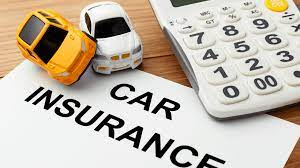Which Insurance is Best for Car
What is the best home car insurance?
Having a household can imply adjustments in your existence — and that consists of modifications in your household insurance plan plans. Switching from a sedan to a minivan, getting married or having teenagers and even the addition of in-laws to your domestic can all imply your premiums and insurance will be different.
What can you do to make your insurance management simple, efficient and cost-effective? Consider a family car insurance that will cover you and all family members over the years. It's beneficial to think of a family insurance plan as a way to save money while providing the best coverage for your family, no matter who's driving.
There is no one "best" choice for each and every family. Because your state of affairs is unique, so is your domestic auto insurance. Many factors, from the kind of automobile you power to the wide variety of new drivers in your household, can have an effect on the quantity of auto insurance plan premiums.
One factor that can have a significant impact on the cost of your insurance is the use of rebates to lower the price of your premiums. Most major insurance companies offer family-based discounts that take into account your family situation, the number of cars you own, and who is insured. Costs usually drop slightly after getting married, as married drivers typically claim less than single drivers. If you become a household with two or more cars, you may also qualify for a multi-car discount. Further discounts apply if you have additional drivers in your policy, such as B. When your child starts driving. You'll want these discounts because teen drivers are the most expensive insurance age group.
How much is home car insurance?
The average cost of home car insurance depends on several factors, from where you live to the age of your car. As a benchmark, the Insurance Information Institute states that the average cost of insuring a 2019 sedan is $1,251. However, there is more to your home insurance product.
Factors Affecting Home Car Insurance CostsTickets/Accidents: Needless to say, you can reduce your insurance costs with a clean ticket. Once you file a claim on your policy, you may see your rates go up. This can affect your home insurance plan, especially if your teen driver is statistically responsible for more accidents than any other age group. The state you live in: Your location plays an important role in determining your premiums. The most expensive state for auto insurance is Florida, where drivers pay an average of $2,587; the cheapest is Maine, where the average is a much more reasonable $831. Driver age: As we've already established, new drivers have the most accidents of any age group, making their insurance premium. The second-highest age group was those 80 and older, which had the highest fatal accident rate. If, like many Americans, you should keep this in mind.
Gender: More men die each year in car crashes than women, and insurance rates for men — especially younger men — traditionally reflect this. However, new research refutes this claim and could affect future insurance rates.
Student grades: Yes, teen drivers are at higher risk for accidents, but many teens are fine, and prudent drivers and insurance companies often reward them. If your teen is doing well in school with a B average or better, your insurance company may give you a discount. Using a telematics device to record a teen's driving habits in real time can also earn you a discount. Number of policies: Almost all major insurers give discounts when you bundle auto insurance with home or life insurance. For example, Allstate can save you 10% when you add Auto to your homeowner's policy. With Geico, you can save up to 25% by insuring multiple cars from the company.
Type of vehicle: A general rule of thumb is that the more expensive your car is to repair, the more you will pay for insurance - so expensive imported cars may increase your premiums. Premiums for luxury cars and high-end SUVs are almost always higher than for sedans and smaller, cheaper cars.
Vehicle age: Generally speaking, the older the car, the cheaper the insurance, especially when it's old enough to remove a collision from coverage. This is worth noting if you are looking to add new young drivers to your policy. If your child is involved in an accident, an older, more reliable car has lower insurance premiums and lower maintenance costs.
Number of people on your policy: This can affect your home auto insurance in ways you didn't expect. For example, if you're married, your premiums may drop slightly because you're less likely to make a claim on your policy than if you were single. Your rates will continue to drop until your child reaches driving age and is included in your policy, at which point they will increase significantly.








Post a Comment